When Pope Francis lands at Andrews Air Force Base on Sept. 22, it will be the first time in a short pontificate and a long life that Jorge Mario Bergoglio, of Argentina, has ever set foot in the United States. His visit promises to be unprecedented in numerous other ways, and several University of Notre Dame scholars have been speculating on how.
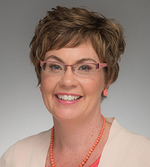 Kathleen Sprows Cummings
Kathleen Sprows Cummings
According to Kathleen Sprows Cummings, director of the Cushwa Center for the Study of American Catholicism, “Papal visits to the United States are relatively rare and comparatively recent. For most of our nation’s history, even the prospect of a visit from a papal representative, let alone the Pope himself, sparked waves of anti-Catholic sentiment and, on occasion, violence. Not too long ago, even the suggestion that a pope would address Congress would have sent shudders down the spines of most American leaders, who feared papal interference in U.S. politics. Still, a visit from this pope — Francis’ first, and quite possibly his only, visit to the U.S. — is especially significant. We can expect that Pope Francis will challenge Americans to live up to their founding ideals, and become ‘a city on a hill’ in resolving global crises such as migration and the environment. For understandable reasons, American Catholics have tended in recent decades to interpret the world and their faith through the lenses of U.S. politics and culture. Pope Francis will inspire them to view the world through a more unifying and healing lens, the lens of the gospel.”
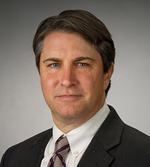 Patrick Deneen
Patrick Deneen
Pope Francis’ work of healing and unifying has certainly been cut out for him, according to Patrick J. Deneen, David A. Potenziani Memorial Associate Professor of Constitutional Studies. “The extraordinary enthusiasm and vast numbers of people who will doubtless greet Pope Francis will mask what is a deeply troubling time for Catholicism in America, which increasingly looks to resemble Europe in its path toward secularity and religious disaffiliation,” Deneen said. “Going forward, the future looks challenging and even grim for the Church. Not only does the trend of declining numbers look daunting (and while immigration of Hispanics may stem some of that bleeding, other measures show substantial drop-off among the second generation as well), but the Church’s social and political position is also under significant duress. While its continued stance against abortion has remarkably appeared to persuade a growing number of fellow citizens, the ongoing stain of the scandal in the clergy and its more prominent stand against contraception (prompted by the promulgation of the HHS mandate) have led many to dismissals that resemble 19th-century hostility. But it is above all the Church’s opposition to same-sex marriage, and the likely implications of that stance for the religious liberty and tax-exempt status of its institutions, that is most worrying.”
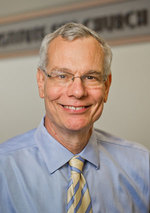 John C. Cavadini
John C. Cavadini
Worrying as such troubled times may be, John C. Cavadini, professor of theology and director of the Institute for Church Life, argues that the visit of Pope Francis will provide Catholics with an energizing challenge to engage them. “I’m so pleased we will be able to welcome the Holy Father to our country, and I have such high hopes for this visit," he said. “I doubt that Pope Francis will leave any of us feeling as comfortable as we were before his visit. But that is something to be proud of. The pope’s job, in part, is to preside in charity and to strengthen the brothers and sisters in the Church. But true charity calls us all out of our comfort zone, and Pope Francis has enjoined us, in Evangelii Gaudium, that we must leave our comfort zones to journey to the peripheries, which are never only geographic, but psychic and spiritual. I’m trying to be ready to be challenged! If it isn’t already apparent, I’m very enthusiastic about Pope Francis’ visit! I can’t wait!”
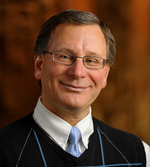 Timothy Matovina
Timothy Matovina
Timothy Matovina, professor of theology and co-director of the Institute for Latino Studies, believes that Latino Catholics in the United States will be particular beneficiaries of the papal visit. “Pope Francis was one of the principal architects of the 2007 episcopal conference at Aparecida, Brazil, which addressed many of the concerns Latino Catholics face in the United States,” Matovina said. “He is a proponent of teología del pueblo (theology of the people), an Argentine version of liberation theology that focuses on everyday people as recipients and agents of evangelization. This approach seeks to provide pastoral support for the broad range of Catholic movements that have energized Latin American Catholics over the past half century. The hunger for God among participants in these movements is also evident among Latinos in the United States. They now comprise nearly half the participants in lay ecclesial ministry programs. I have taught in these programs in dioceses across the country and personally witnessed the sacrifice and dedication of highly motivated Latino participants. Their faith is also manifest in apostolic movements, groups that stress a programmatic conversion to Christianity as an intentional way of life. As in Latin America, Pope Francis’ urgent appeal that Christians lay down their lives to proclaim the joy of the Gospel will certainly intensify the wave of revitalization movements among Latino Catholics in the United States.”
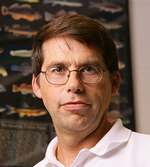 David Lodge
David Lodge
David M. Lodge, Ludmilla F., Stephen J., and Robert T. Galla Professor in the Department of Biological Sciences, hopes that Pope Francis will renew in the United States some of the challenges posed in his recent and controversial encyclical on the environment. “With Laudato Si’ still fresh in mind,” Lodge said, “the pope may remind us that the extreme wealth of the U.S. is rooted in the abundance of our natural resources, and that the future welfare of children and grandchildren across the planet depends on how sustainably we use and protect those resources.”
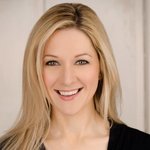 Candida Moss
Candida Moss
“To Pope Francis, America is not only the land of the free, it is also the home of rampant greed and audacious consumption,” said Candida Moss, professor of theology. “The visit will be filled with soft words of mercy, but we can also expect firm reminders that as one of the world’s wealthiest and most powerful nations we have a responsibility to care for the poor and the planet. While Francis is enormously popular in the U.S., the content of his message on the environment and poverty has yet to truly infiltrate the hearts and minds of the American public. During his visit the pope hopes to transition from tweetable meme to effective agent of change. His scheduled visit to a prison, for example, is not only about mercy and love; it also highlights a failing of American society. Americans should expect Francis to deliver an exhortation to care for society’s vulnerable, spiced with a touch of condemnation, and presented with lashings of papal charisma and compassion.”
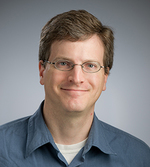 Joseph Kaboski
Joseph Kaboski
“The pope has spoken out about the economy and emphasized the responsibility that wealthy nations have toward the rest of the world,” said Joseph Kaboski, David F. and Erin M. Seng Foundation Professor of Economics, "so it will be very interesting to hear what his specific message for the U.S. is. While the pope is not an economist and his job is not to propose concrete economic policies, he is called to be a prophetic voice in the world — praising the work of God and the collaboration of mankind where he sees it, while calling to make straight the way of the Lord where he sees serious social problems.”
Contact:
Patrick J. Deneen, 574-631-7659, pdeneen@gmail.com
Kathleen Cummings, 574-631-8749, cummings.23@nd.edu
John Cavadini, 574-631-5510, cavadini.1@nd.edu
Timothy Matovina, 574-631-3841, matovina.1@nd.edu
David M. Lodge, 574-631-6094, dlodge@nd.edu
Joseph Kaboski, 574-631-9906, jkaboski@nd.edu
Candida Moss, 574-631-5079, candida.moss@nd.edu